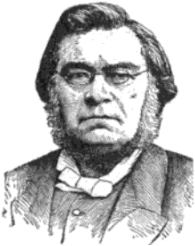A Quote by Monica Johnson
Regret is not a proactive feeling. It is situated in disappointment, sorrow, even remorse. It merely wishes things were different without an act to cause a difference. However, repentance is different. Repentance is an admission of, hatred of, and turning away from sin before God.
Related Quotes
Be ashamed when you sin, don't be ashamed when you repent [To repent means to have a change of heart and mind. It is not simply a feeling of sorrow ,but a psycho/spiritual growth away from evil/death and a turning to God/life]. Sin is the wound, repentance is the medicine. Sin is followed by shame; repentance is followed by boldness [ Boldness means to beg God for undeserved mercy]. Satan has overturned this order and given boldness to sin and shame to repentance.
Repentance out of mere fear is really sorrow for the consequences of sin, sorrow over the danger of sin — it bends the will away from sin, but the heart still clings. But repentance out of conviction over mercy is really sorrow over sin, sorrow over the grievousness of sin — it melts the heart away from sin. It makes the sin itself disgusting to us, so it loses its attractive power over us. We say, ‘this disgusting thing is an affront to the one who died for me. I’m continuing to stab him with it!’
True repentance is no light matter. It is a thorough change of heart about sin, a change showing itself in godly sorrow and humiliation - in heartfelt confession before the throne of grace - in a complete breaking off from sinful habits, and an abiding hatred of all sin. Such repentance is the inseparable companion of saving faith in Christ.
Because we worship our way into sin, ultimately we need to worship our way out. When Christians commit sin, they do not cease worshiping. Rather, their worship is directed away from the Creator and toward created things. Repentance is the act of turning from sin and returning to God by trusting in Jesus Christ who is the perfect worshiper.
The solution to staying on the right side of the fine line between using and abusing grace is repentance. The road to repentance is godly sorrow (2 Corinthians 7:10). Godly sorrow is developed when we focus on the true nature of sin as an offense against God rather than something that makes us feel guilty.
There are many ways to cover up our sin. We may justify or minimize it by blaming circumstances and others people. However, real repentance first admits sin as sin and takes full responsibility. True confession and repentance begins when blame shifting ends...Just as real repentance begins only where blame shifting ends, so it also begins where self-pity ends, and we start to turn from our sin out of love for God rather than mere self-interest.
Repentance is being sorry enough to quit your sin. You will never know the forgiving mercy of God while you are still wedded to your sins. Repentance is the soul's divorce from sin, but it will always be joined to faithRepentance that is not joined to faith is a legalistic repentanceProfessed faith that is not joined to repentance is a spurious faith, for true faith is faith in Christ to save me not in but from my sin. Repentance and faith are inseparable, and 'unless you repent you will all likewise perish' (Luke 13:3).
Through repentance the filth of our foul actions is washed away. After this, we participate in the Holy Spirit, not automatically, but according to the faith, humility and inner disposition of the repentance in which our soul is engaged. For this reason it is good to repent each day as the act of repentance is unending.



































